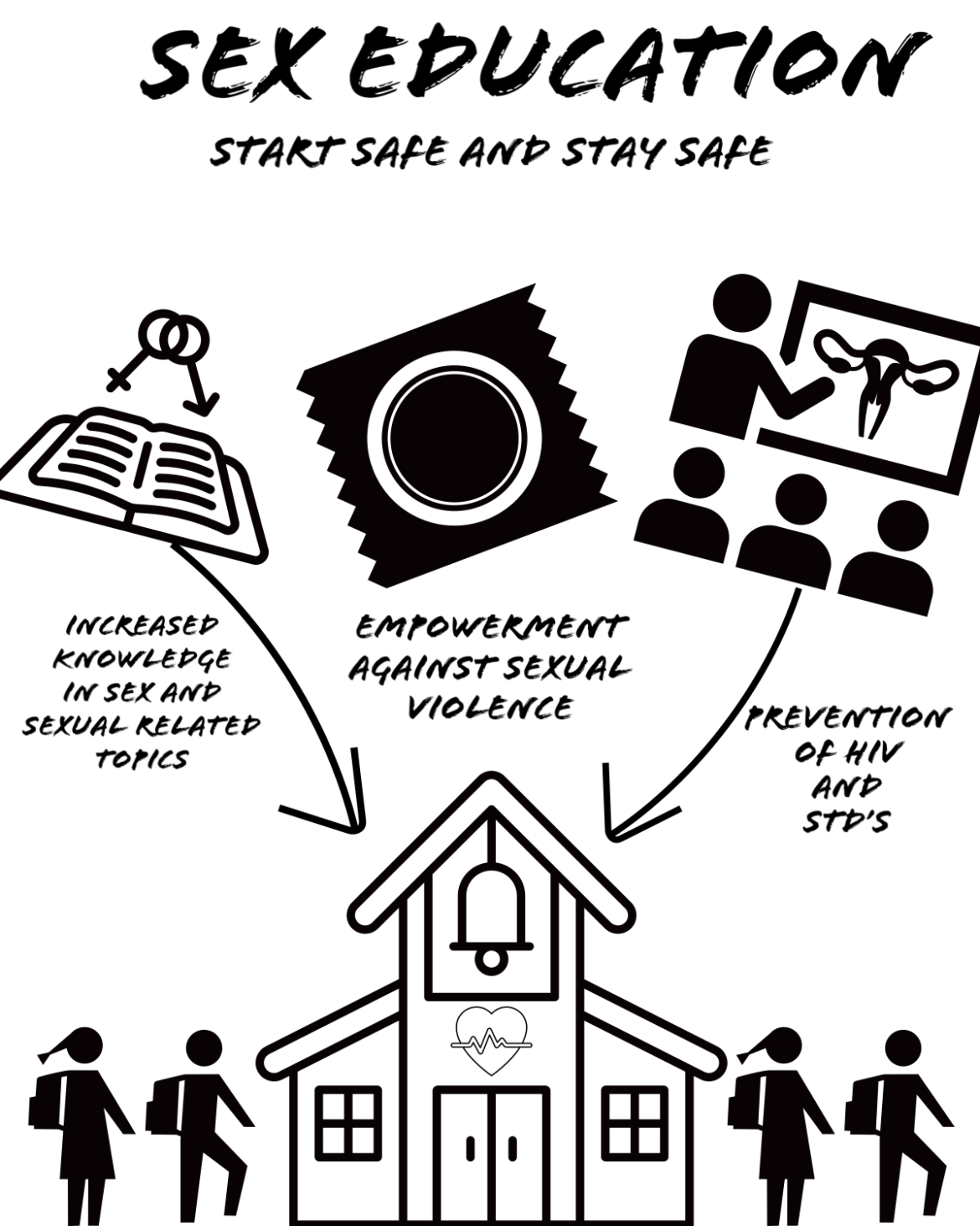Due to the increase of sexually transmitted diseases and infections, Lansing Eastern High School continues to provide students with comprehensive sex education
Eastern High School ensures its students are well-informed about various topics related to sex and sexuality through high-quality teaching and learning because sexually transmitted diseases (STDs) and sexually transmitted infections (STIs) are on the rise.
Understanding attitudes and values about sex can help students navigate relationships with themselves, their partners, and their community while managing their sexual health.
Eastern High School Assistant Principal Catherine Bates said the high school wants to empower students with facts and information to make healthy choices correlated to sex and sexual matters.
“We provide it [ sex education course] so that students are fully aware and responsible,” Bates said. “It’s part of health education because we want our students to live a healthy lifestyle.
According to a press release from the Centers for Disease Control and Prevention (CDC) during the early months of the COVID-19 pandemic in 2020, STDs decreased but most had been resurrected by the end of that year. The report also found reported cases of gonorrhea, syphilis, and congenital syphilis exceeded those of 2019.
In addition, the CDC stated that people who used a condom correctly every time during sexual relations could avoid contracting STDs or STIs. Condoms seem to lessen the risk of infection for STDs. But, while using a condom decreases the probability, students could still contract certain STDs, such as herpes or HPV, from contact with a partner’s skin.
Health and Physical Education teacher Mike Rebec said that when teaching high schoolers sex education, he has gotten some laughs and giggles because the students aren’t familiar with the information or lessons prepared.
“The kids are learning the consequences of having sex,” Rebec said. “Things they might learn outside of here or in movies or songs is kind of make-believe.”
While the benefits of sex education are apparent, the imbalance between the learning that students need and what they get is significant. According to Teen Health Mississippi, fewer than 7% of Queer students ages 13-21 report school health classes with positive representations of LGBTQ-related topics.
Michigan State Creative Advertising major Violet Gray said she believes that providing sex education to high school students is incredibly important. She appreciates the knowledge that she received in high school. However, she said she has noticed that most public school sessions focus on cisgender sex.
“It mitigates a lot of different parts, or negates a lot of different populations that do need information as well on those things,” Gray said. “Research has shown that there is a significant population within high school that are sexually active.”
It is not a requirement in Michigan schools to teach sex education or maintain a comprehensive curriculum. However, the state sex education policies instruct schools to provide HIV/AIDS education. Sex education classes must also be advertised in writing to parents and guardians, providing the option to “opt-out”, which removes their children from the course.
Although parents can take their children out of the lesson, Rebec said many had not done so. He said after informing a couple of parents and sending out the information about the lessons, they have no problems.
“I’ve been at Eastern now for nine years, and there’s probably been three kids or three parents that have said, ‘No, I’d rather not’,” Rebec said. “It’s important to provide sex education at an early age so they know the consequences of their behavior.”
